Dumore has been making quality high-speed electric tools since such a thing has been in existence. While well known in the machinist world for their lathe tool post grinders, they also sell a nice sensitive drill press that's optimized for small work. In this article I will show you a bit about the drill press, some recommendations about small drills and a fixture plate that makes it easier to handle small work.
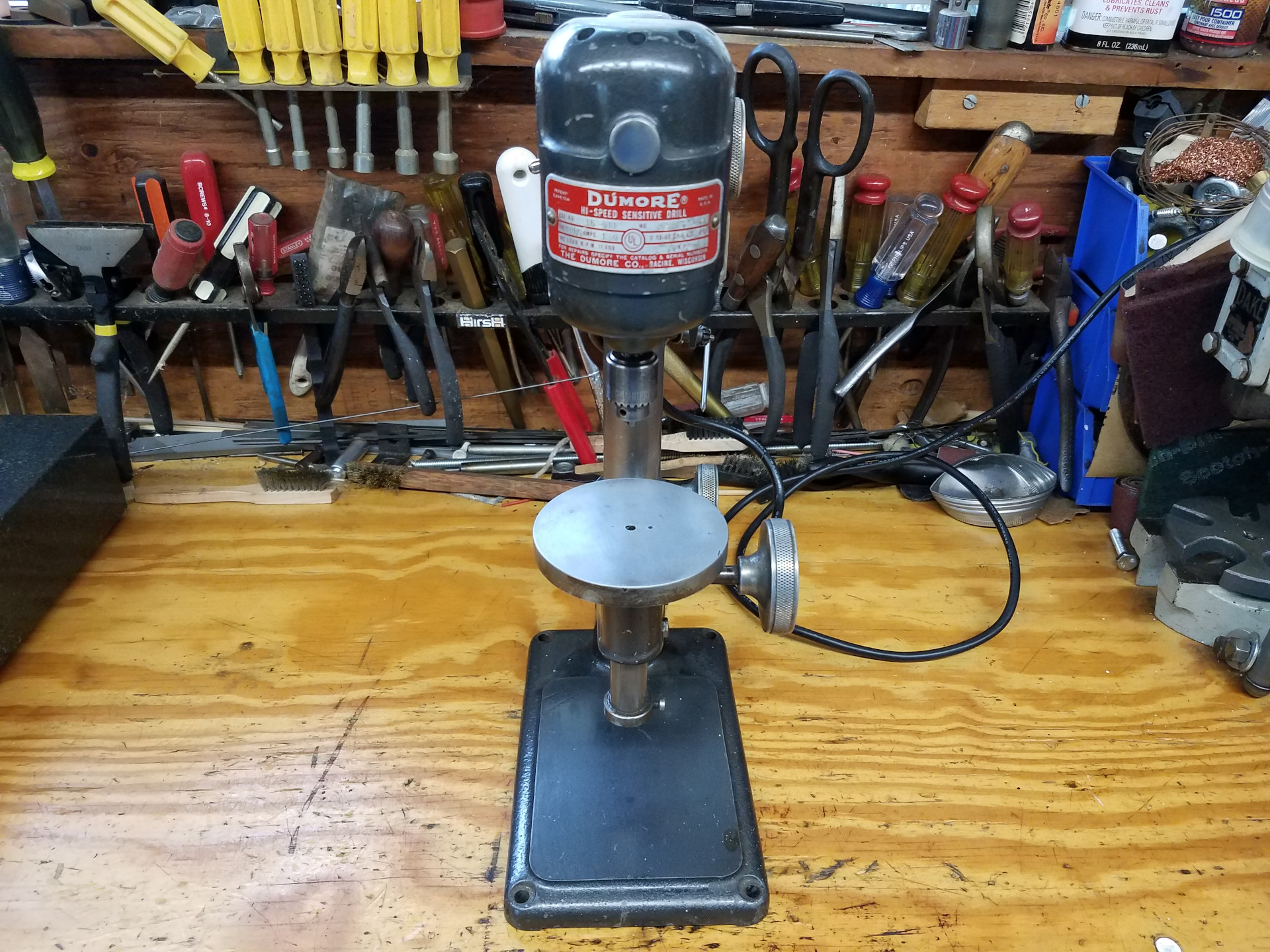
This is the Dumore Series 16 Sensitive drill press. This tool is specialized for turning small drill bits (1/8" and smaller) quickly (17000 RPM) with very little run-out. The Dumore company is still in business and producing the same tool in the USA:
[Dumore Series 16 Web Page] (https://www.dumoretools.com/sensitive-drill-press?osCsid=7gfk6prl4djqifbcc3phlbeg34)
One feature of this drill press compared to others in this class is that the table moves the work up to the drill giving the operator a very precise feel.
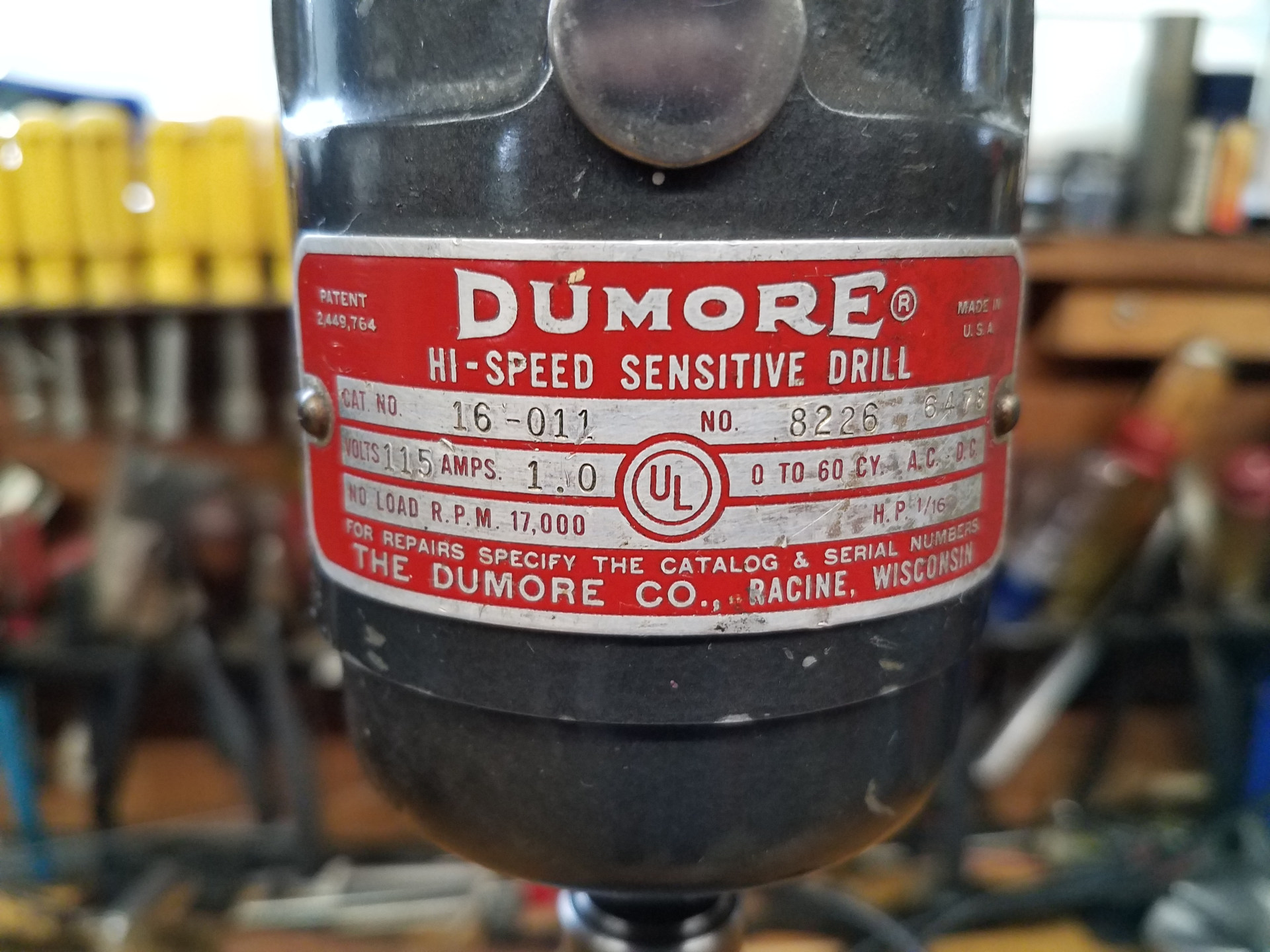
According to a factory rep from Dumore, this particular drill press is probably around fifty years old.
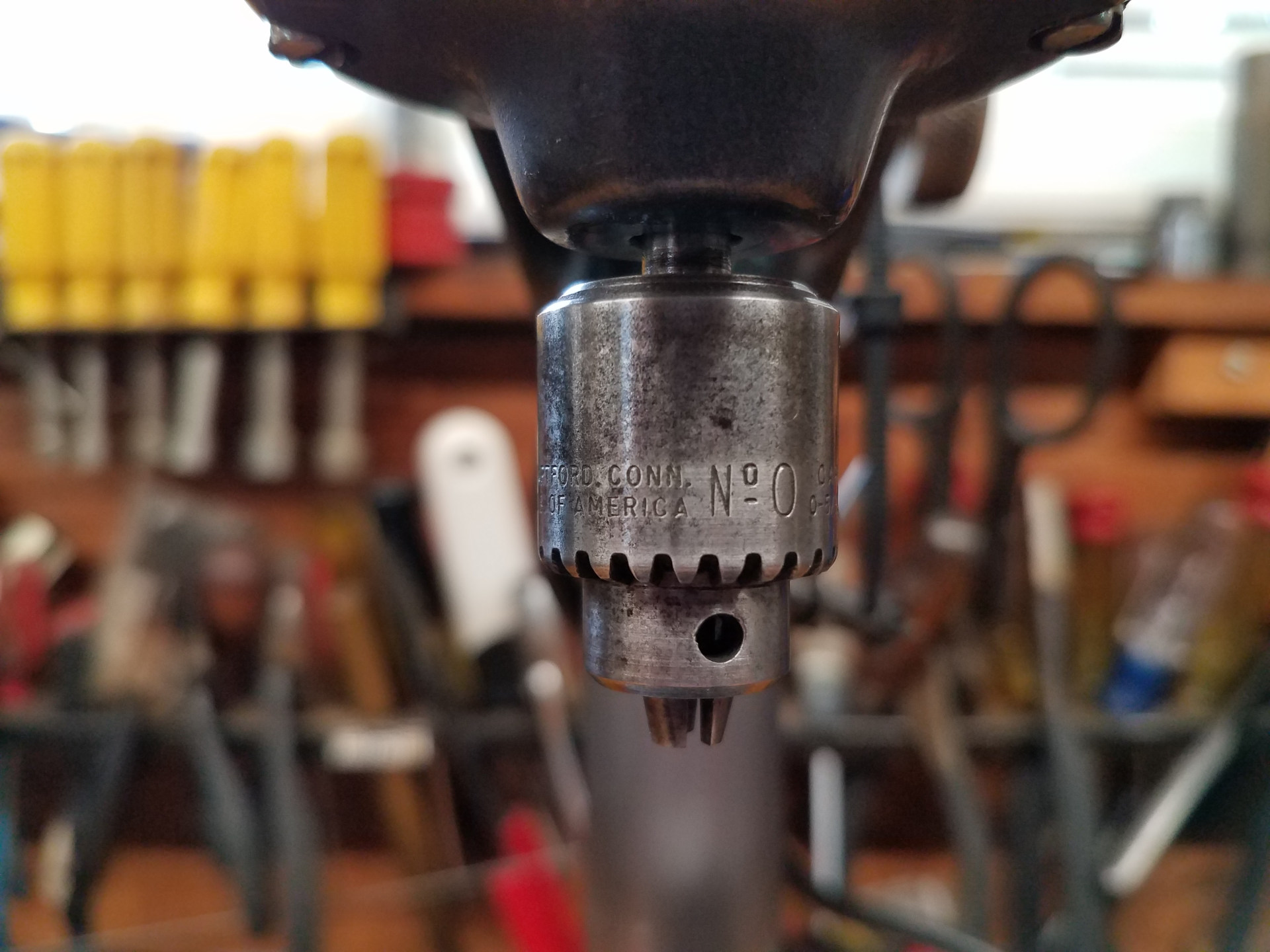
A small, keyed Jacobs chuck is used to hold the drills.
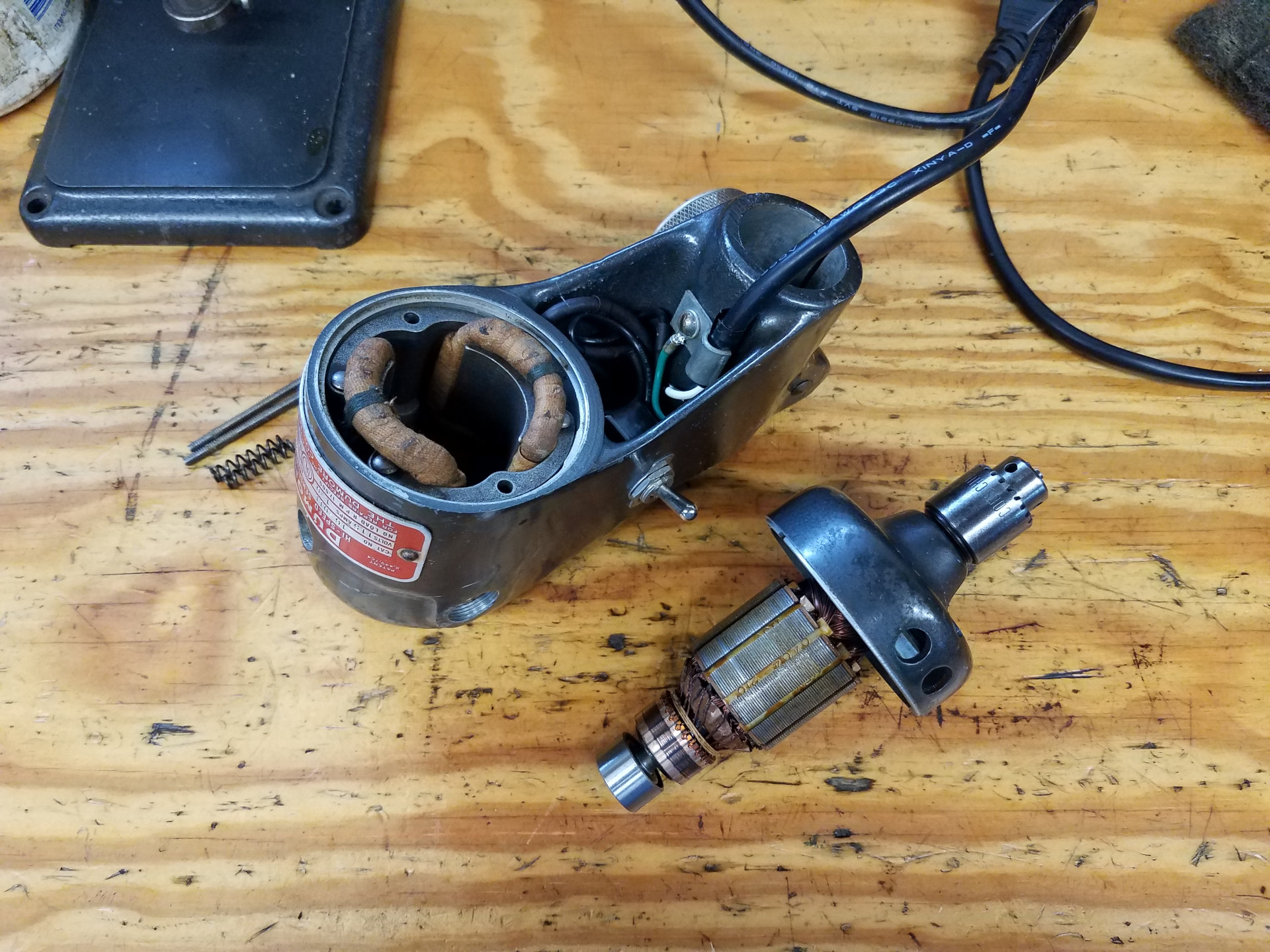
Here the motor head is disassembled for inspection and maintenance. A few drops of special high-speed bearing oil was added to both of the shielded bearings.
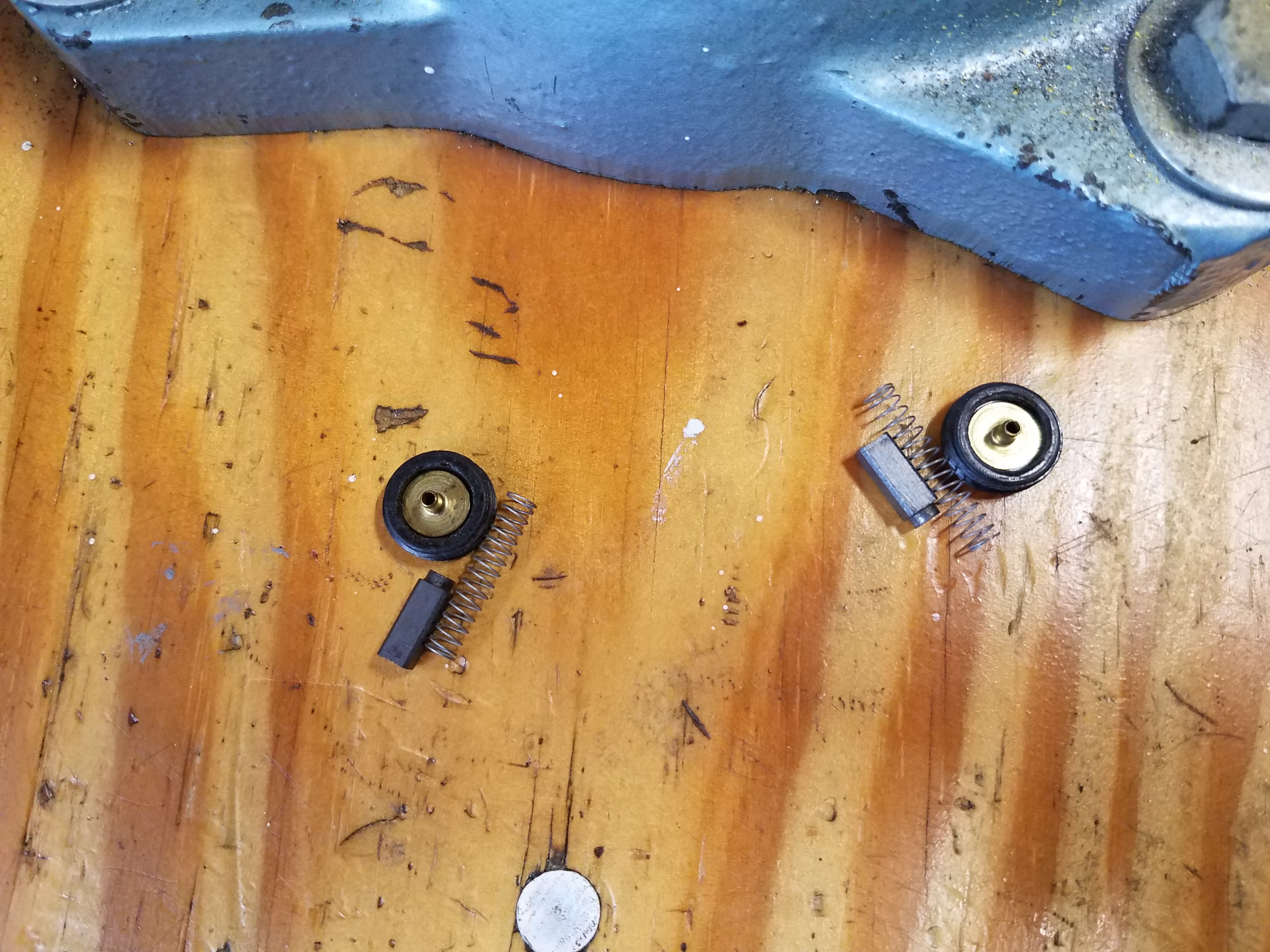
This drill press uses a brushed motor, so a Variac or Triac based speed controller works well but with the usual corresponding loss of power.
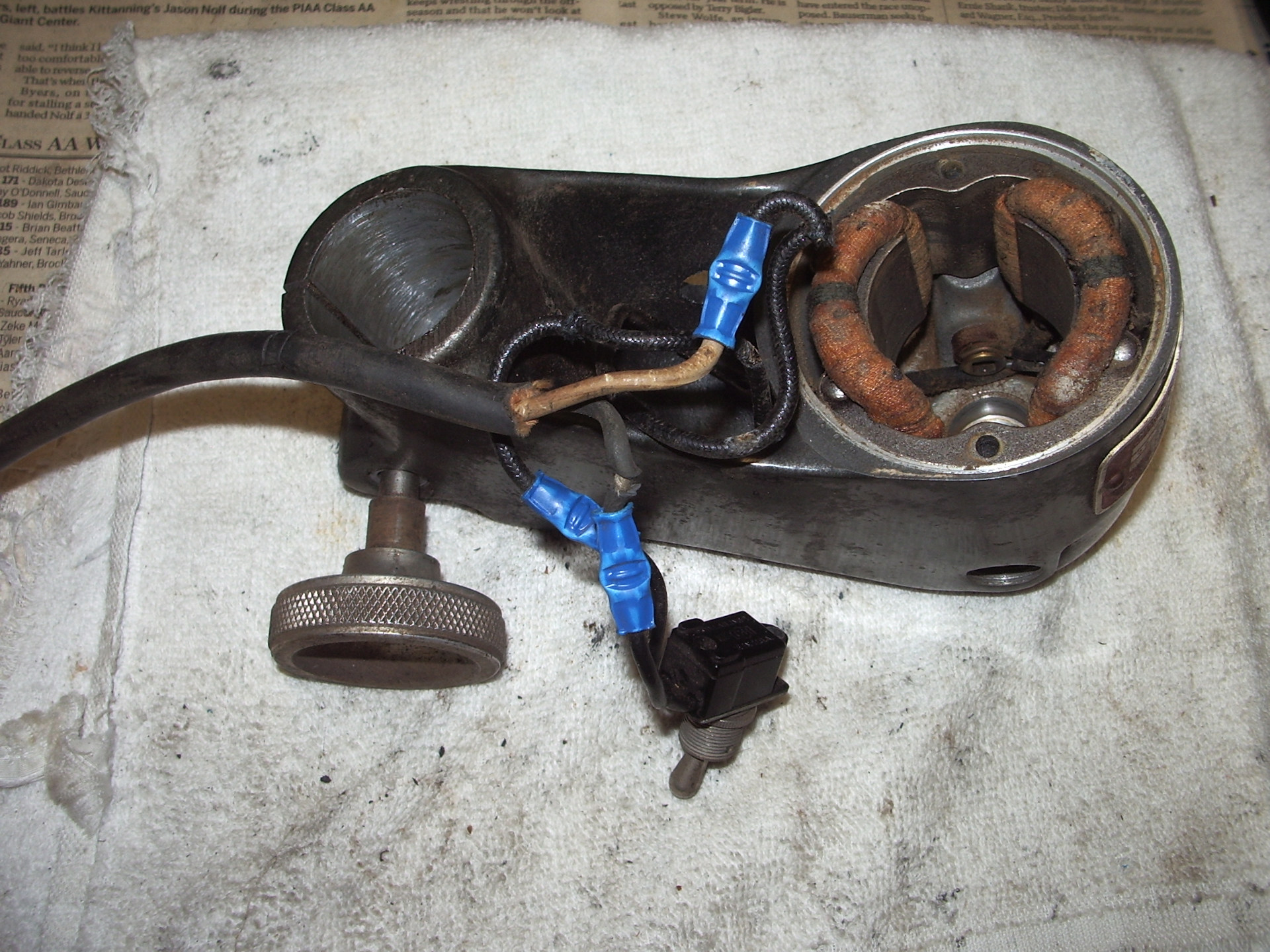
An old picture of the wall plug wiring when the drill was bought many years ago. As you can see, it was in slightly terrifying condition! It's always a good idea when buying a used electrical tool to give it a once-over to make sure someone hasn't been having their crazy ways with it. This wiring was repaired immediately and still looks good as you can see in an earlier picture,
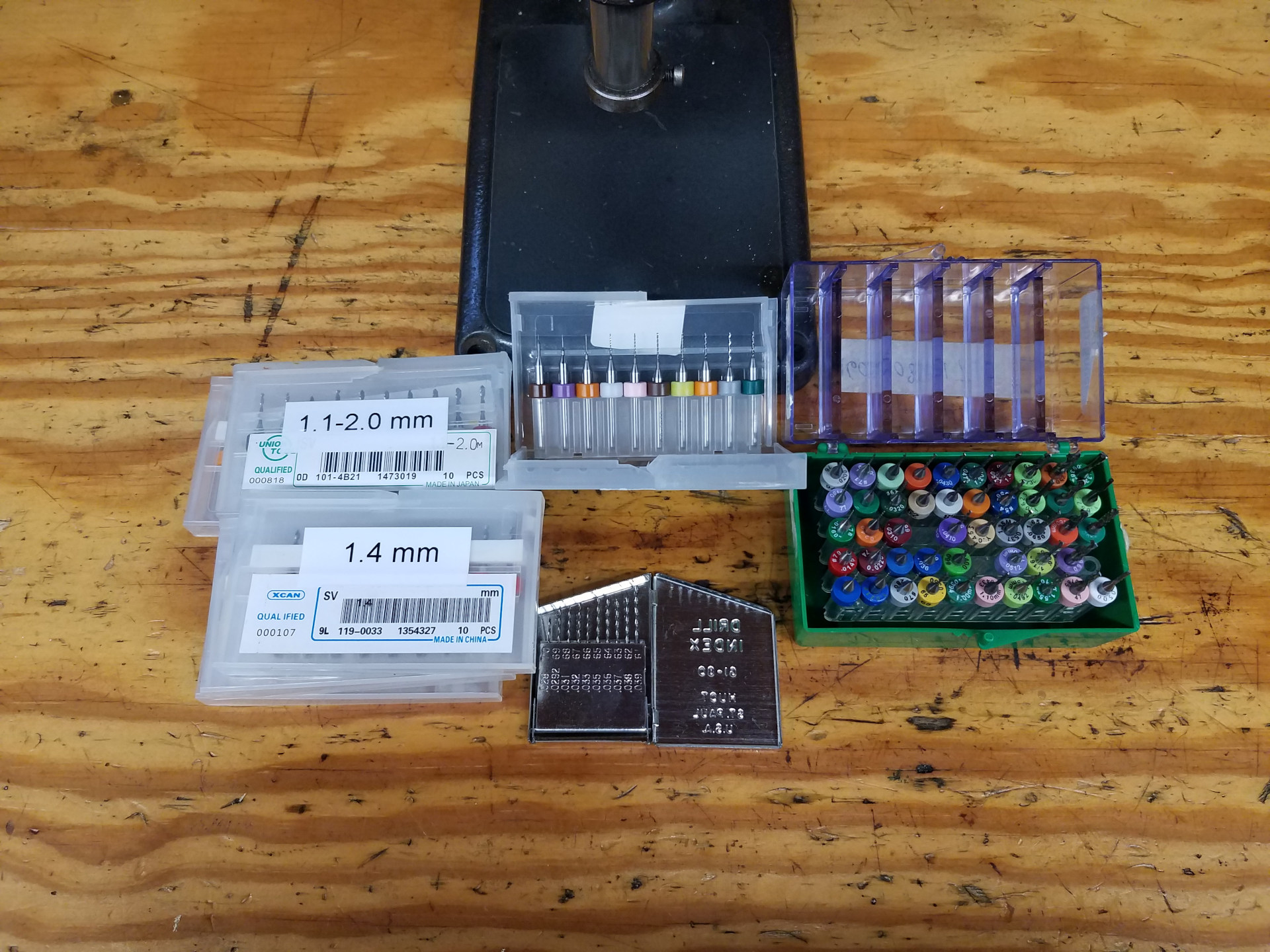
The first drills I tried using with this drill press were regular steel ones like shown in the small drill index in the center of the picture. While they worked, many times they didn't seem that sharp new and were also quite flexible in use. Later on I discovered carbide drills as shown in the rest of this picture. They have an 1/8" shank and are made of solid carbide. They are very rigid and quite sharp.
While you can get these small carbide drills in fractional and number sizes like shown in the index on the right, usually I purchase metric drill sets directly from Asia which are available from .1-3.0mm sizes in .1mm (.004") increments. These sets are very reasonably priced. Whenever the drills get dull they go in the garbage so I try to keep plenty of spares on hand.
With these small carbide bits, I just let the Dumore run at its default speed of 17,000 RPM.
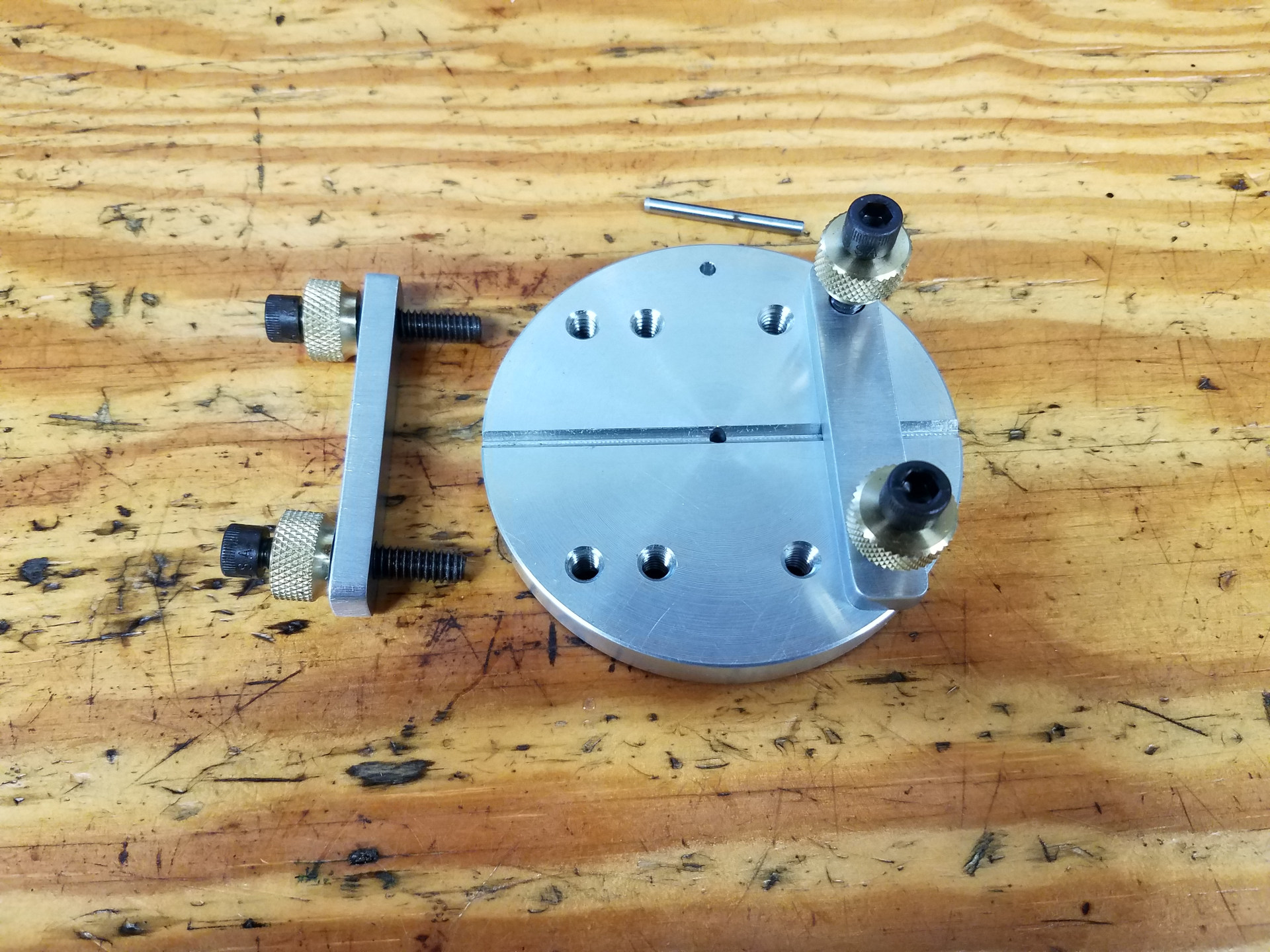
It's very difficult to accurately hold small work by hand while using this drill press so I made this aluminum fixture plate. Socket head cap screws (1/4") with brass thumb screws press down aluminum plates to hold round work in a V groove for cross drilling.
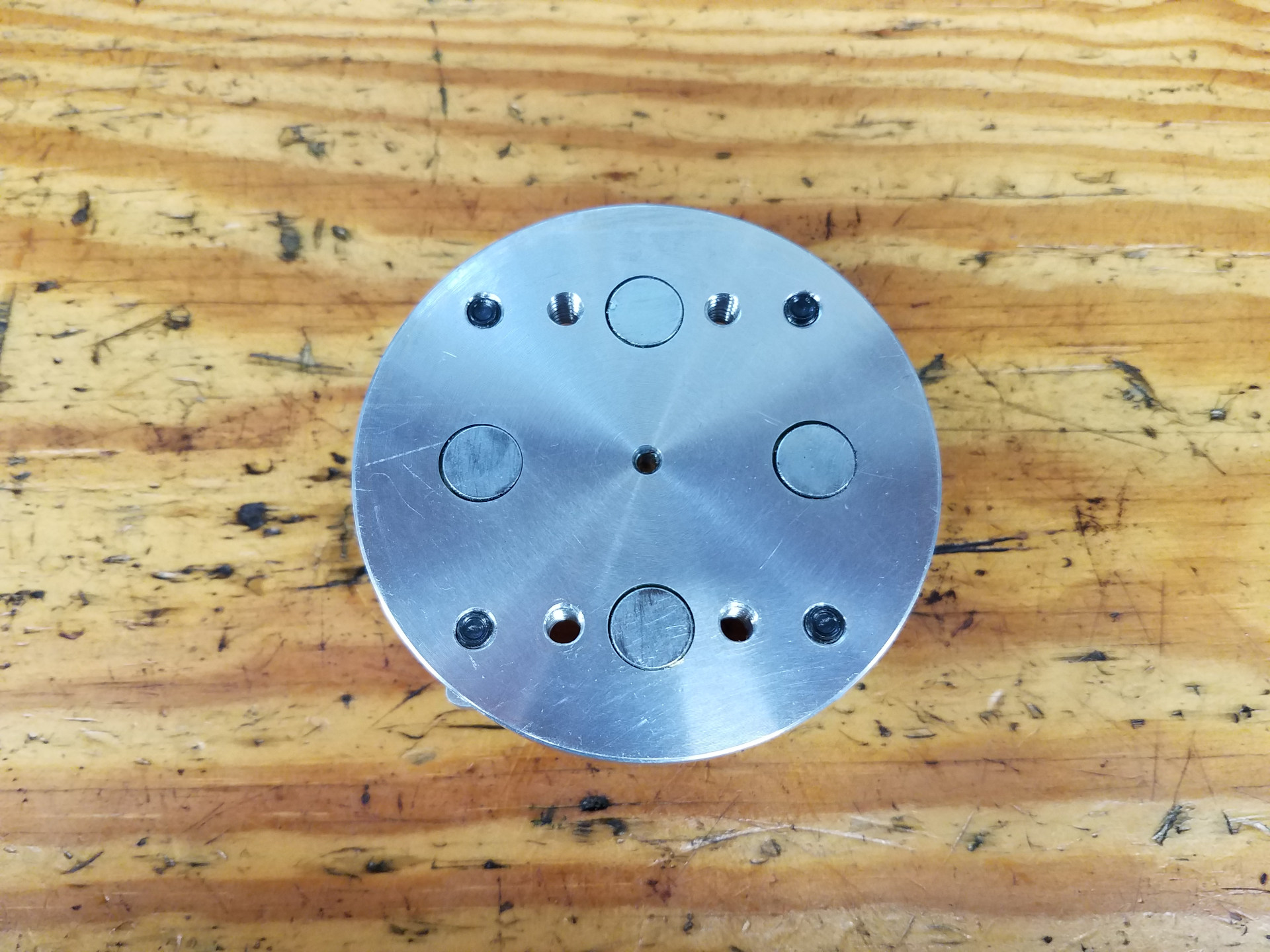
Four nice sized neodymium magnets hold the fixture plate securely to the drill press table.
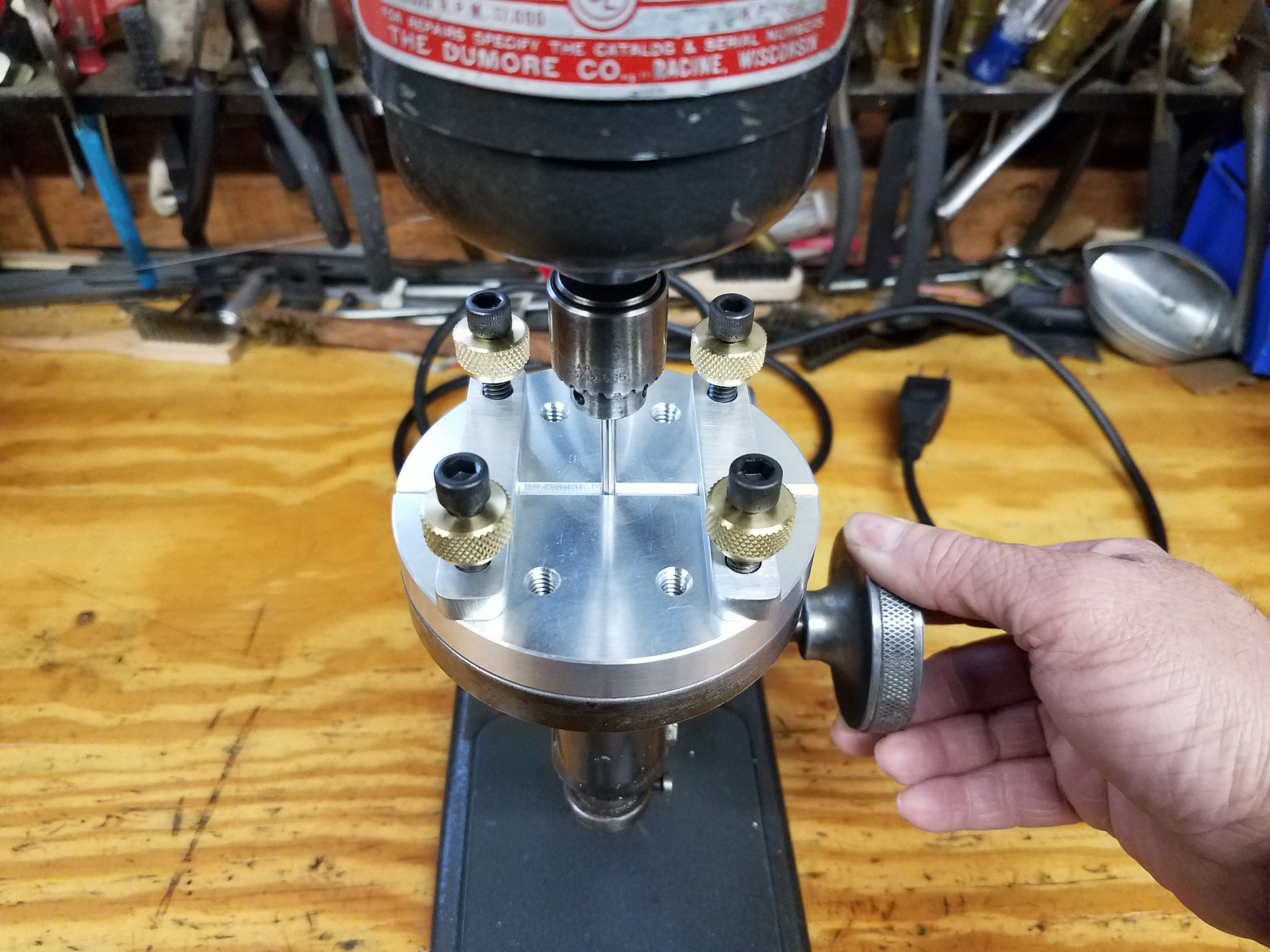
To align the head, table and fixture plate, a 1/8" dowel rod is held in the drill chuck and fed into a reamed hole in the center of the fixture plate. Once aligned, the drill's adjustment knobs are tightened and then it's ready to use.
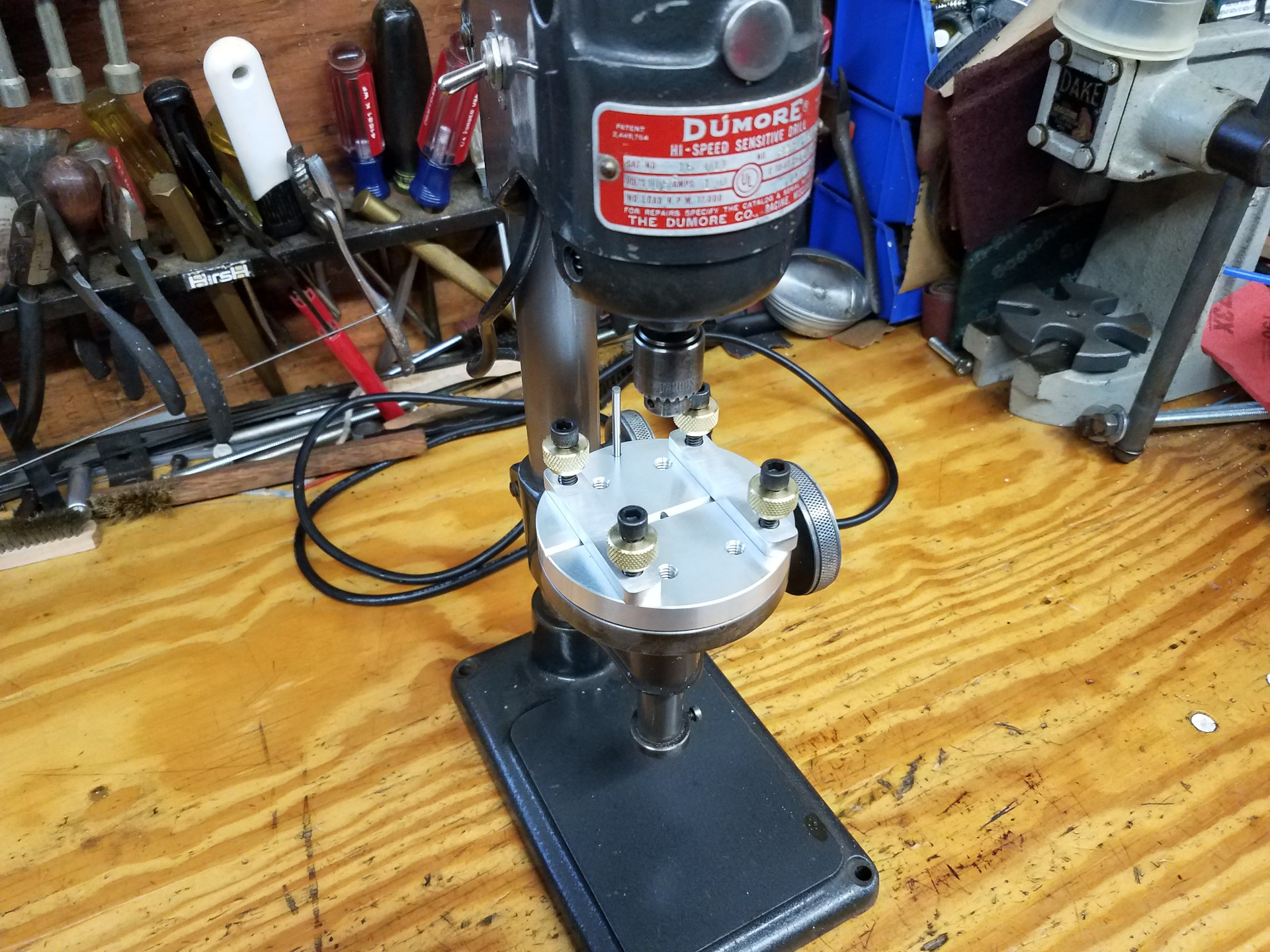
The dowel pin is stowed at the back of the fixture plate.
This is a video of the Dumore drill press drilling a cross hole in a model steam engine valve rod.
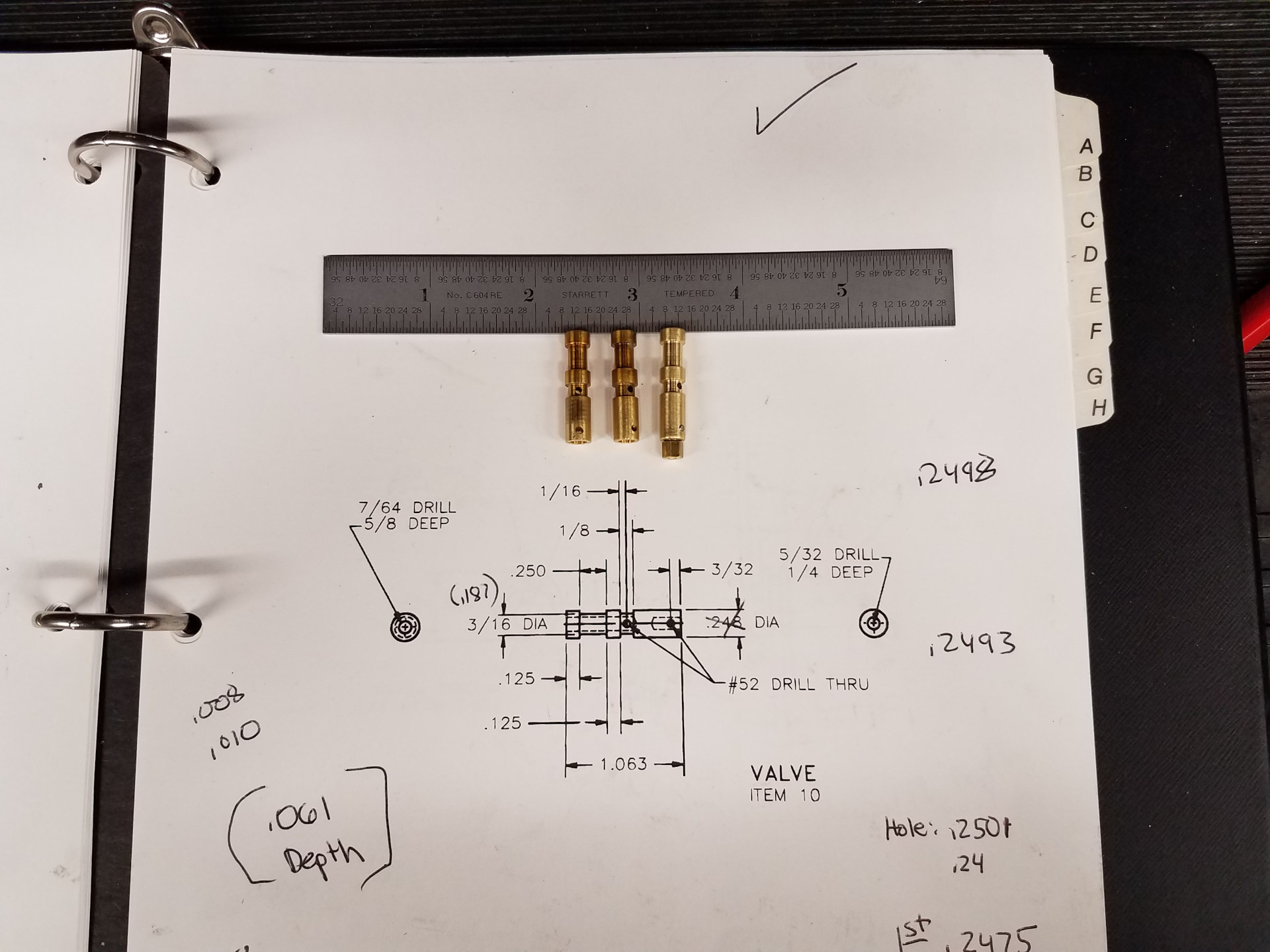
Completed valves showing the drilled holes.
It's a bit difficult to justify the new price of this Dumore drill press for home and hobby use, but there seems to be quite a few floating around the used market in the $150 price range which I think is a decent bargain. For their intended use, they are quite robustly built and should last a long time with minimal care.